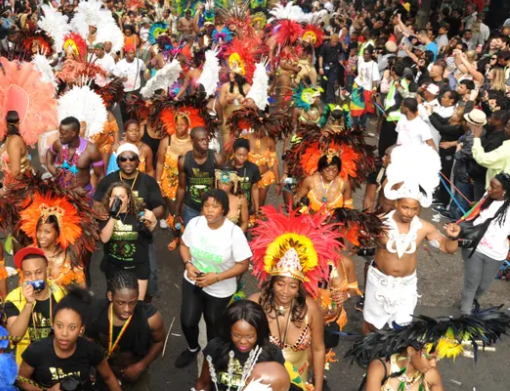In recent decades, detailed analytical research has produced ever-more sophisticated insights into crowd behaviour, many of which disprove these long-standing assumptions.
近幾十年來,詳盡的分析研究對群體行為產(chǎn)生了越來越復(fù)雜的見解,其中許多都反駁了這些長期存在的假設(shè)。
"Crowds have an amazing ability to police themselves, self-regulate, and actually display a lot of pro-social behaviour, supporting others in their group,"
群體有一種驚人的能力,可以自我監(jiān)督、自我調(diào)節(jié),而且還會(huì)表現(xiàn)出很多親社會(huì)的行為,支持群體中的其他人。”
says Anne Templeton, an academic at Edinburgh University who studies crowd psychology.
愛丁堡大學(xué)研究群眾心理學(xué)的學(xué)者安妮·坦普爾頓表示。
She points to the 2017 Manchester Arena terrorist attack,
她提到了2017年曼徹斯特體育館的恐怖襲擊,
in which CCTV footage showed members of the public performing first aid on the wounded before emergency services arrived,
閉路電視錄像顯示,在應(yīng)急服務(wù)到達(dá)之前,公眾對傷者進(jìn)行急救,
and Mancunians rushed to provide food, shelter, transport and emotional support for the victims.
曼徹斯特人迅速為受害者提供食物、住所、交通工具和情感支持。
"People provide an amazing amount of help in emergencies to people they don't know, especially when they're part of an in-group."
“在緊急狀況下,人們?yōu)槟吧颂峁┝舜罅繋椭绕涫钱?dāng)他們同屬于一個(gè)小圈子時(shí)。”
Strange things happen to our brains when we're in a crowd we've chosen to be part of, says Templeton.
鄧普頓表示,在我們置身于自己選擇加入的群體中時(shí),我們的大腦會(huì)發(fā)生奇怪的變化。
We don't just feel happier and more confident, we also have a lower threshold of disgust.
我們不僅是感覺更快樂和更自信,我們厭惡的閾值也會(huì)更低。

This is why festivalgoers will happily share drinks (and by dint of their proximity, sweat) with strangers,
這就是為什么參加節(jié)日的人會(huì)樂意與陌生人分享飲料(由于他們離得很近,出汗),
or Hajj pilgrims will share the sometimes bloody razors used to shave their heads. In a crowd, we feel safer from harm.
朝覲的朝圣者會(huì)共用有時(shí)帶血的剃刀來剃頭。在人群中,我們感到安全,免受傷害。
If we now have a better grasp of the complexity of crowd dynamics, the core truth about them is relatively simple:
如果我們現(xiàn)在能更好地理解人群動(dòng)力學(xué)的復(fù)雜性,他們的核心真相相對簡單:
they have the potential to magnify both the good and bad in us.
它們有可能放大我們的優(yōu)點(diǎn)和缺點(diǎn)。
The loss of self in a crowd can lead to unthinkable violence, just as it can ecstatic transcendence.
在人群中失去自我會(huì)導(dǎo)致不堪設(shè)想的暴力,就像它會(huì)帶來狂喜的超越一樣。
What is striking is that, in recent decades, the latter has troubled the British establishment every bit as much as the former.
令人震驚的是,近幾十年來,后者和前者一樣,都給英國當(dāng)權(quán)派帶來了麻煩。
‘The open crowd is the true crowd," wrote Elias Canetti in his 1960 book Crowds and Power – "the crowd abandoning itself freely to its natural urge for growth",
開放的人群才是真正的人群,”伊萊亞斯·卡內(nèi)蒂在他1960年的著作《人群與權(quán)力》中寫道,“人群自由地放任自己,自然地追求增長。”
rather than those hemmed in by authorities, limited in shape and size.
而不是那些被當(dāng)局框住,在形狀和大小上受到限制的人。
The Sermon on the Mount, he writes, was delivered to an open crowd.
他寫道,登山寶訓(xùn)是向開放的人群傳達(dá)的。
The obsequious flock, the brainwashed cult, the army marching in lock-step, is a world away from a fluid, democratic,
諂媚的人群,被洗腦的邪教,步調(diào)一致的軍隊(duì),是一個(gè)遠(yuǎn)離流動(dòng)的,民主的,
sometimes anarchic congregation of the people. These open crowds have become harder to find, and harder to keep open.
有時(shí)是人們的無政府集會(huì)。這些開放的人群越來越難找到,也更難保持開放。












